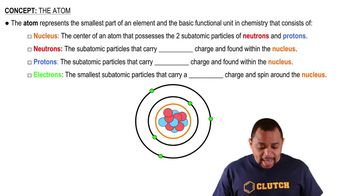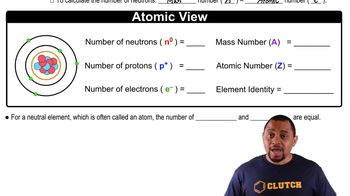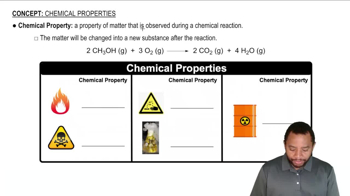Textbook Question
Consider an atom of 63Cu. b. What is the symbol of the ion obtained by removing two electrons from 63Cu?

 Verified step by step guidance
Verified step by step guidance



Consider an atom of 63Cu. b. What is the symbol of the ion obtained by removing two electrons from 63Cu?
Consider an atom of 63Cu. (c) What is the symbol for the isotope of 63Cu that possesses 36 neutrons?
(a) Define atomic number and mass number.
(a) Which two of the following are isotopes of the same element: 3116X, 3115X, 3216X?
(b) What is the identity of the element whose isotopes you have selected?
How many protons, neutrons, and electrons are in the following atoms? (a) 84Kr (b) 200Hg (c) 70Ga